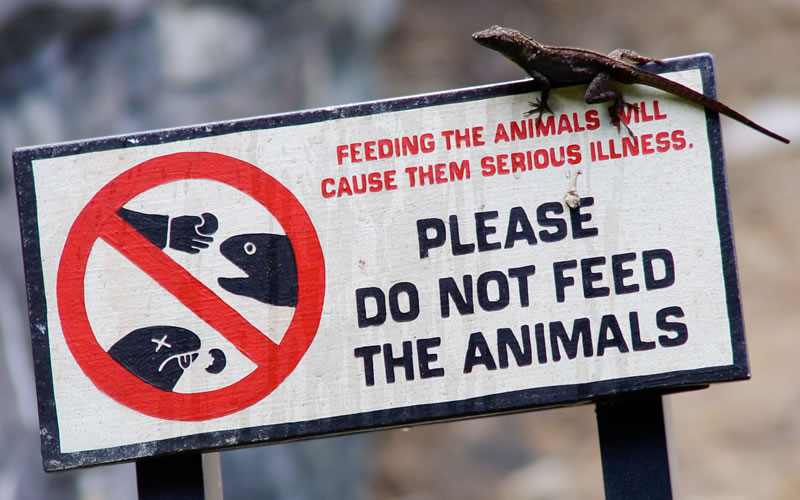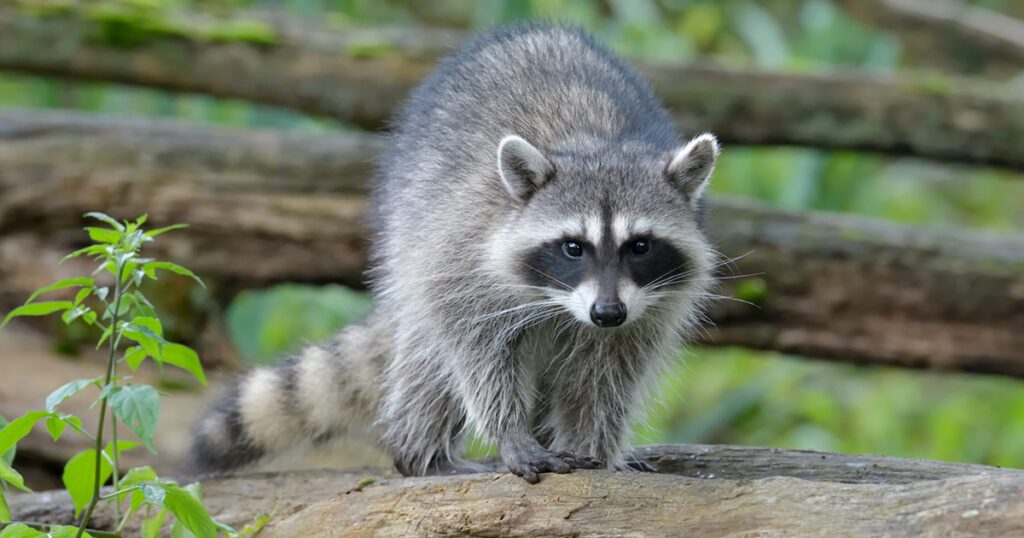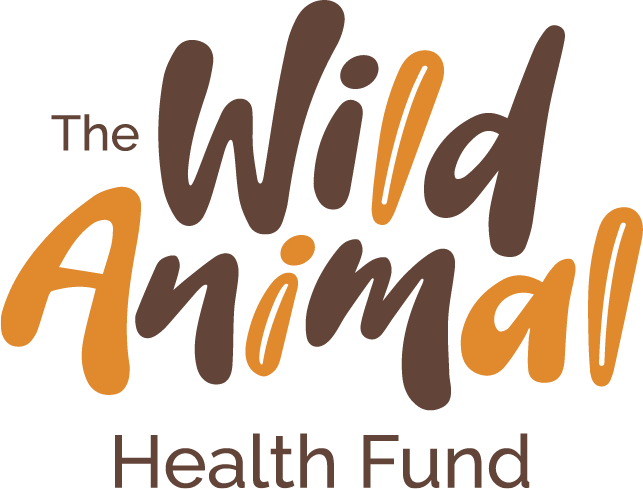Why should you not feed wildlife?

It’s tempting to feed wildlife or at some point, and it seems like an innocent action. Whether it’s tossing bread to ducks or giving squirrels your leftovers, feeding or touching wildlife is always harmful and sometimes illegal. So, why should you not feed (or touch) wildlife?
Human food is not healthy for wildlife
Wild animals do not need food from humans. Their diets are highly specialized according to their surroundings and just like certain foods are toxic to our pets, the same goes for wildlife. Human food does not contain the nutrients that animals need and some animals cannot tell the difference between food and wrappers/foil.
It puts them in harm’s way
Have you ever noticed animals will hang around restaurant patios, docks, and other areas? This is food conditioning and they are receiving their food sources from us. Animals that wouldn’t normally be near busy roads and intersections are hanging around in search of food, increasing their risk of vehicle vs. animal accidents. In addition to vehicle accidents, conditioning wildlife to human food can cause them to lose their fear of humans and become more aggressive. Aggressive wildlife is at an increased risk of being killed.

They can become dependent on human food
When wildlife become dependent on handouts from humans, it changes their natural behaviors like foraging. If humans are absent, the animals can starve. Also, migratory animals like birds may not migrate during their normal time of year due to the reliance on human food.
It can spread disease
Normally wildlife disperse across large areas of land. Introducing human food will cause wildlife to congregate in small areas and this increases the risk of disease transmission. Food can get contaminated by urine, feces, saliva, all of which harbor microorganisms that cause disease. While it’s dangerous for wildlife, humans are at risk too. The CDC recognizes over 200 zoonotic diseases, meaning certain diseases are being transmitted from animals to humans and vice versa.
Don’t pet wildlife either
In short, you can see why it’s important not to feed wildlife, but it’s important not to touch them either. Avoid any contact with wild animals and report injured animals to your local Fish and Wildlife law enforcement. In addition, do not attempt to free wildlife from fishing line or other entanglements, as this can cause more harm than good if you are not a professional. Like feeding wildlife, touching them or interfering in any way is usually illegal. On vacation, avoid activities that advertise holding or petting wildlife as this interaction causes stress to the animal.
Help! I see an injured animal!
Do not interfere with injured wildlife, here is a list of resources to help injured wildlife in each state.
About the Wild Animal Health Fund
The Wild Animal Health Fund is a program of the American Association of Zoo Veterinarians. In 2012, a group of zoo and wildlife veterinarians decided to solve the lack of zoo and wildlife health knowledge. The Wild Animal Health Fund provides funding to veterinarians for health studies that solve issues like disease, illness diagnoses, pain relief, reproductive issues, and much more. Non-domestic veterinarians simply do not have access to a large amount of health knowledge for millions of species. The world’s animals deserve better.
